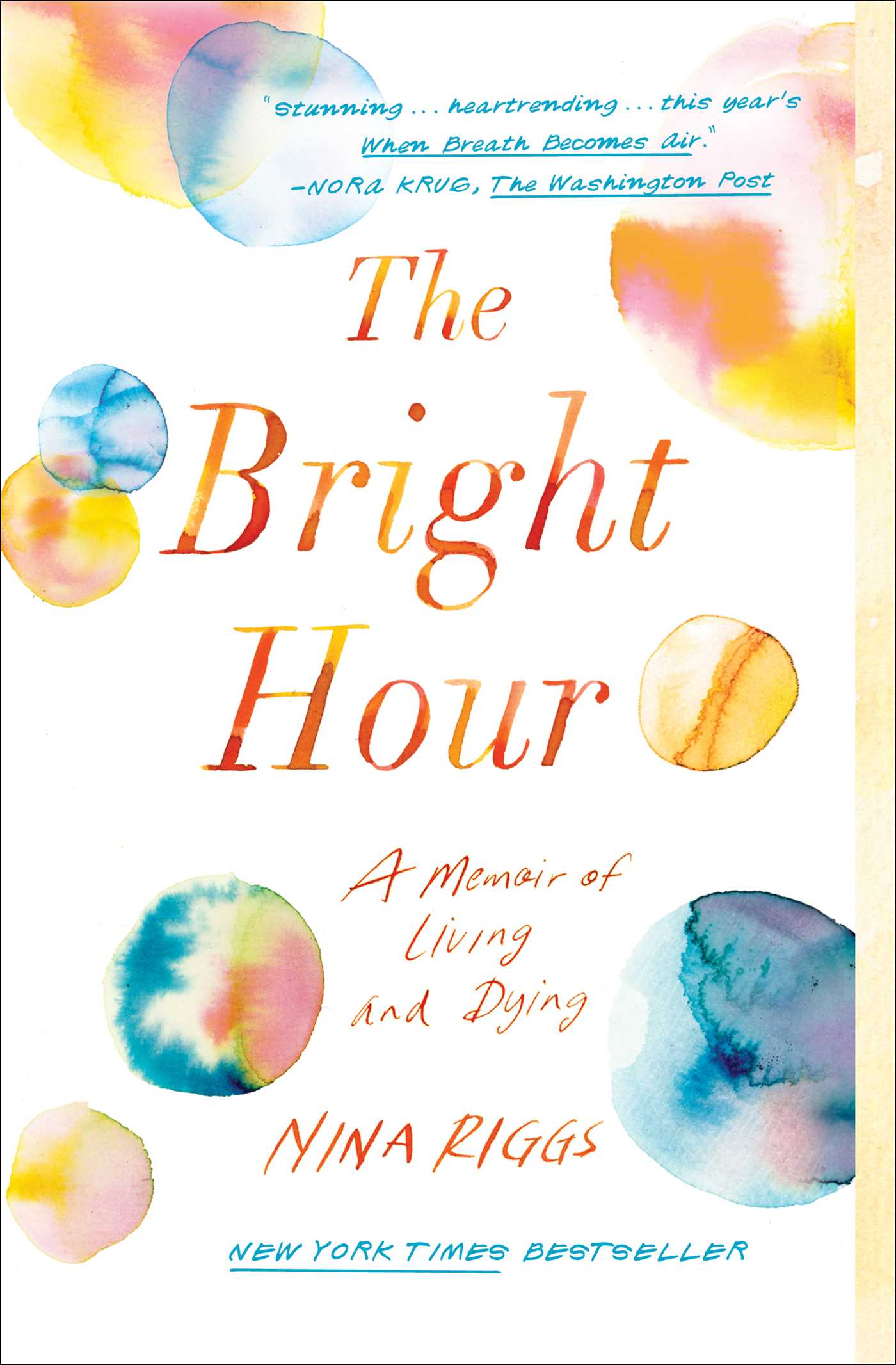I have a tremendous fear of dying, like most people I assume. I don’t like to swim in the ocean because I feel that somewhere in that vast blue depth is a shark waiting to attack me. I can’t drive a car without thinking about the potential for a fatal accident. I’m just not super into the idea of death.
And I’m really not into the idea of cancer. Those six letters petrify me. To be fair, I’m an anxious human with a lot of suspicious moles and a recurring nightmare in which my parents die from cancer.
I’d been hearing about THE BRIGHT HOUR for a while before I read it. All I knew was that it was a memoir written by a 37-year-old woman dying of breast cancer. No way, I thought. I’m not emotionally or mentally prepared for that reading experience, of confronting that fear.
But after listening to multiple people rave about this memoir for months, I decided to try the first chapter. Turns out I didn’t need a whole chapter. I felt my life shift from the very first sentence.
“ ‘Dying isn’t the end of the world,’ my mother liked to joke after she was diagnosed as terminal,” Nina Riggs writes. “There are so many things worse than death: old grudges, a lack of self-awareness, severe constipation, no sense of humor, the grimace on your husband’s face as he empties your surgical drain into the measuring cup.”
I suppose you could add fear of dying to that list. And Riggs confronts that fear head-on in her memoir. In THE BRIGHT HOUR, she celebrates the last two years of her life. She chooses to embrace her experience with cancer and celebrate the bright moments shining through the dark. She finds joy in her family, in beach vacations, books, changes in the weather, in gardening and music. While writing about dying, Riggs is really writing about living.
It’s an understatement to say that I loved this book. Riggs’s story of battling cancer, of living through the terrifying process of dying and actively choosing to enjoy that time, changed my perspective on life. This book made me want to stop, to slow down and appreciate the little things—like beautiful sentences in beautiful books or waking up to the sound of rain.
And somehow, through it all, this book made me less afraid of dying. It gave me the strangest sense of comfort and peace. It taught me that even when things are hard and sad and scary, you can still find good things. You can still find love and happiness.
At one point in the book, Riggs writes, “I want death to find me planting my cabbages, not concerned about it or—still less—my unfinished garden.”
I, too, want to live life planting cabbages.










